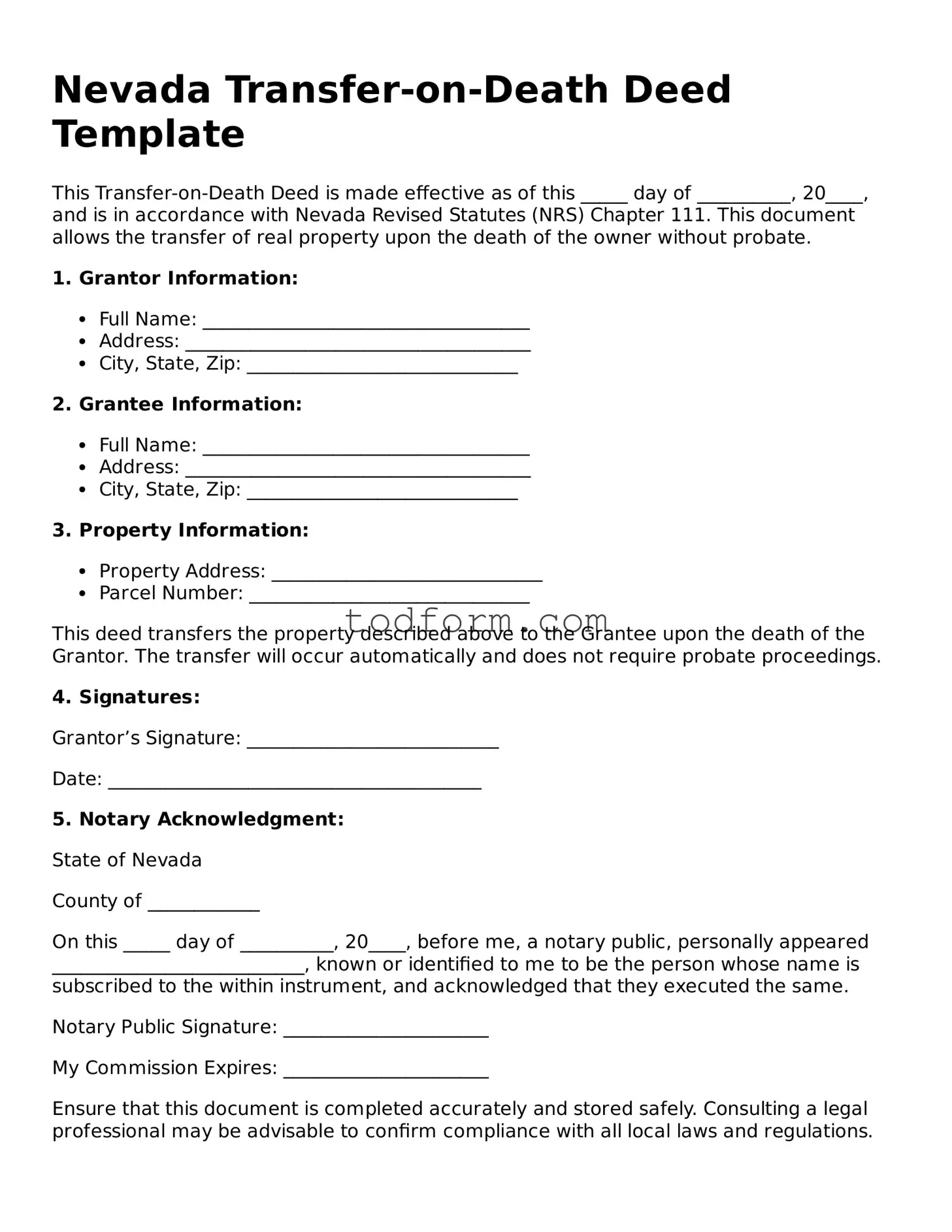Nevada Transfer-on-Death Deed Template
This Transfer-on-Death Deed is made effective as of this _____ day of __________, 20____, and is in accordance with Nevada Revised Statutes (NRS) Chapter 111. This document allows the transfer of real property upon the death of the owner without probate.
1. Grantor Information:
- Full Name: ___________________________________
- Address: _____________________________________
- City, State, Zip: _____________________________
2. Grantee Information:
- Full Name: ___________________________________
- Address: _____________________________________
- City, State, Zip: _____________________________
3. Property Information:
- Property Address: _____________________________
- Parcel Number: ______________________________
This deed transfers the property described above to the Grantee upon the death of the Grantor. The transfer will occur automatically and does not require probate proceedings.
4. Signatures:
Grantor’s Signature: ___________________________
Date: ________________________________________
5. Notary Acknowledgment:
State of Nevada
County of ____________
On this _____ day of __________, 20____, before me, a notary public, personally appeared ___________________________, known or identified to me to be the person whose name is subscribed to the within instrument, and acknowledged that they executed the same.
Notary Public Signature: ______________________
My Commission Expires: ______________________
Ensure that this document is completed accurately and stored safely. Consulting a legal professional may be advisable to confirm compliance with all local laws and regulations.
